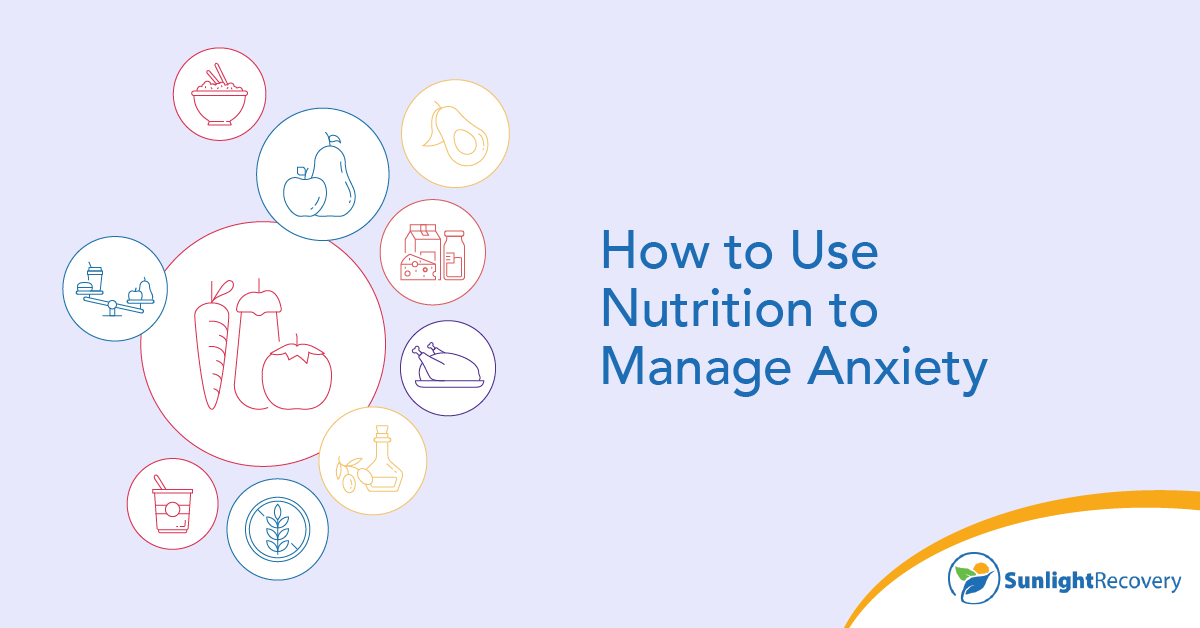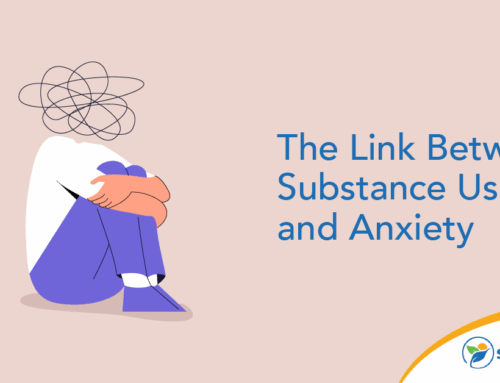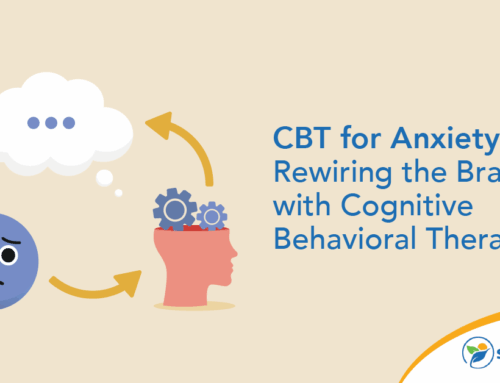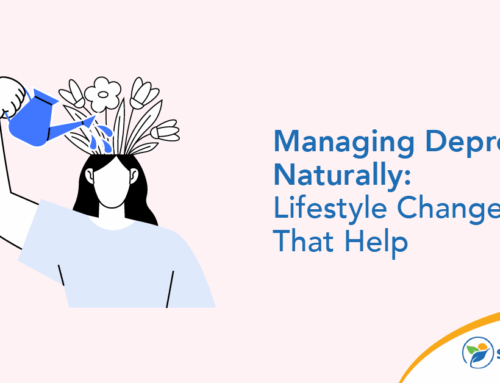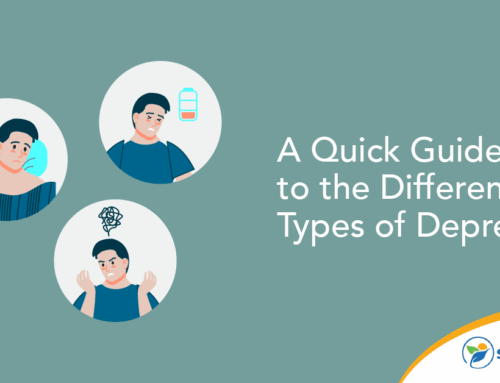Feeling anxious from time to time is a normal part of life. However, when anxiety becomes persistent and overwhelming, it can develop into a disorder that significantly impacts your daily functioning. What many people don’t realize is that the foods we eat play an important role in our mental health, including how we experience and manage anxiety.
The connection between our gut and brain is stronger than previously thought, and making strategic dietary choices to choose calming foods may help reduce anxiety symptoms naturally. Let’s explore how nutrition affects anxiety and what dietary changes might help you find relief.
The Connection Between Diet and Mental Health
Your brain requires a constant supply of nutrients to function properly. The foods you consume directly impact your brain chemistry, influencing neurotransmitters that regulate mood and anxiety levels.
The gut-brain connection — a biochemical signaling pathway between your digestive system and central nervous system — means your gut health significantly affects your mental health. About 95% of serotonin, a key mood-regulating neurotransmitter, is produced in the gut.
Poor nutrition can contribute to inflammation throughout the body, including the brain, and this has been linked to increased anxiety. Studies have found that people who consume a diet high in processed foods, sugar and unhealthy fats tend to report higher levels of anxiety than those who eat a nutrient-dense diet.
Key Nutrients That Support Anxiety Management
Certain nutrients have been found to play important roles in brain function and anxiety regulation. Types of foods that promote anxiety relief include:
- Omega-3 fatty acids. These essential fats help reduce inflammation and support brain health. Low omega-3 levels have been associated with increased anxiety and depression symptoms.
- Magnesium. This mineral helps regulate neurotransmitters that reduce stress and anxiety. Unfortunately, many people don’t get enough magnesium in their diets, with data showing that approximately 50% of adults consume less than the required amount.
- B vitamins. These vitamins play critical roles in brain function and the production of neurotransmitters. Deficiencies in B vitamins, particularly B12 and folate, have been linked to anxiety and depression.
- Zinc. This trace mineral affects how the body responds to stress. Zinc deficiency has been associated with increased anxiety-like behaviors.
- Antioxidants. These compounds help reduce oxidative stress, which has been implicated in anxiety disorders. Vitamins C and E and other plant compounds serve as powerful antioxidants.
- Probiotics and prebiotics. These support gut health, which in turn affects brain function through the gut-brain axis. A healthy gut microbiome may help reduce anxiety symptoms.
Calming Foods to Incorporate and Foods to Limit
The foods you eat can have a calming impact on your body and mind. Foods that help anxiety that you can add to your diet include:
- Fatty fish. Salmon, mackerel and sardines are rich in omega-3 fatty acids, which help reduce inflammation and support brain health.
- Nuts and seeds. Almonds, walnuts, flaxseeds and chia seeds provide magnesium, zinc and omega-3s.
- Leafy greens. Spinach, kale and other greens are excellent sources of magnesium and folate.
- Fermented foods. Yogurt, kefir, sauerkraut and kimchi contain probiotics that support gut health.
- Berries. Blueberries, strawberries and other berries are rich in antioxidants that help combat oxidative stress.
- Dark chocolate. In moderation, dark chocolate (70% cocoa or higher) provides flavonoids that may reduce stress hormones.
- Whole grains. Oats, quinoa and brown rice provide complex carbohydrates that help stabilize blood sugar and provide steady energy.
Just as the calming foods mentioned above can support your body and mind to keep your anxiety levels low, some foods can intensify anxiety levels. Foods that may worsen anxiety include:
- Caffeine. Coffee, energy drinks and some teas can trigger anxiety symptoms in sensitive individuals.
- Alcohol. While it may temporarily reduce anxiety, alcohol can disrupt sleep and alter brain chemistry.
- Processed foods. Foods high in refined sugars and unhealthy fats can increase inflammation and negatively impact gut health.
- Sugary beverages. Sodas and fruit juices can cause blood sugar spikes and crashes, which may trigger anxiety symptoms.
Sample Meal Planning Tips for Anxiety Relief
Creating a diet that supports anxiety management doesn’t have to be complicated. Here are some practical tips:
- Start the day right. Choose a breakfast that combines complex carbohydrates, protein and healthy fats, such as oatmeal topped with nuts, seeds and berries.
- Plan regular meals. Skipping meals can lead to blood sugar drops that trigger anxiety symptoms.
- Prepare anxiety-friendly snacks. Keep nutrient-dense snacks handy for when hunger strikes, such as yogurt with berries, apple slices with almond butter or a small handful of nuts.
- Stay hydrated. Dehydration can mimic or worsen anxiety symptoms.
- Limit trigger foods. Pay attention to how different foods affect your mood and anxiety levels. Consider keeping a food diary to identify patterns.
A sample menu of anxiety-reducing nutrition might include:
- Breakfast: Greek yogurt with berries, nuts and a drizzle of honey
- Lunch: Quinoa bowl with salmon, avocado and leafy greens
- Snack: Dark chocolate (1 to 2 squares) and an orange
- Dinner: Turkey with roasted vegetables and sweet potato
- Evening snack: Chamomile tea and a small handful of walnuts
The Role of Professional Nutritional Counseling
While dietary changes can be helpful for anxiety management, they work best as part of a broader approach. If you’re struggling with significant anxiety symptoms, seeking professional help is important.
A registered dietitian who specializes in mental health can create a nutrition plan that addresses your specific needs and health conditions. They can also help you navigate food sensitivities or allergies that might be contributing to your anxiety symptoms.
Nutritional counseling may be particularly beneficial if you have:
- A history of disordered eating
- Medical conditions that require dietary restrictions
- Multiple food sensitivities or allergies
- Co-occurring mental health conditions
- Difficulty implementing dietary changes on your own
Moving Forward With Nutrition-Based Support
Making dietary changes to support mental health is a gradual process. Start with small, sustainable changes rather than completely overhauling your diet all at once. Remember that nutrition is just one piece of the anxiety management puzzle. For many people, a combination of approaches works best, including:
- Proper nutrition
- Regular physical activity
- Stress management techniques
- Adequate sleep
- Therapy or medication
If your anxiety symptoms are significantly impacting your daily life, don’t wait to seek help. Professional support can make a tremendous difference in your quality of life and overall well-being.
If you’re struggling with anxiety that’s affecting your daily functioning, nutritional changes alone may not be enough. Contact us now at Sunlight Recovery, where our compassionate team of counselors can help you develop a plan that addresses all aspects of anxiety management. Start your journey toward better mental health today.


